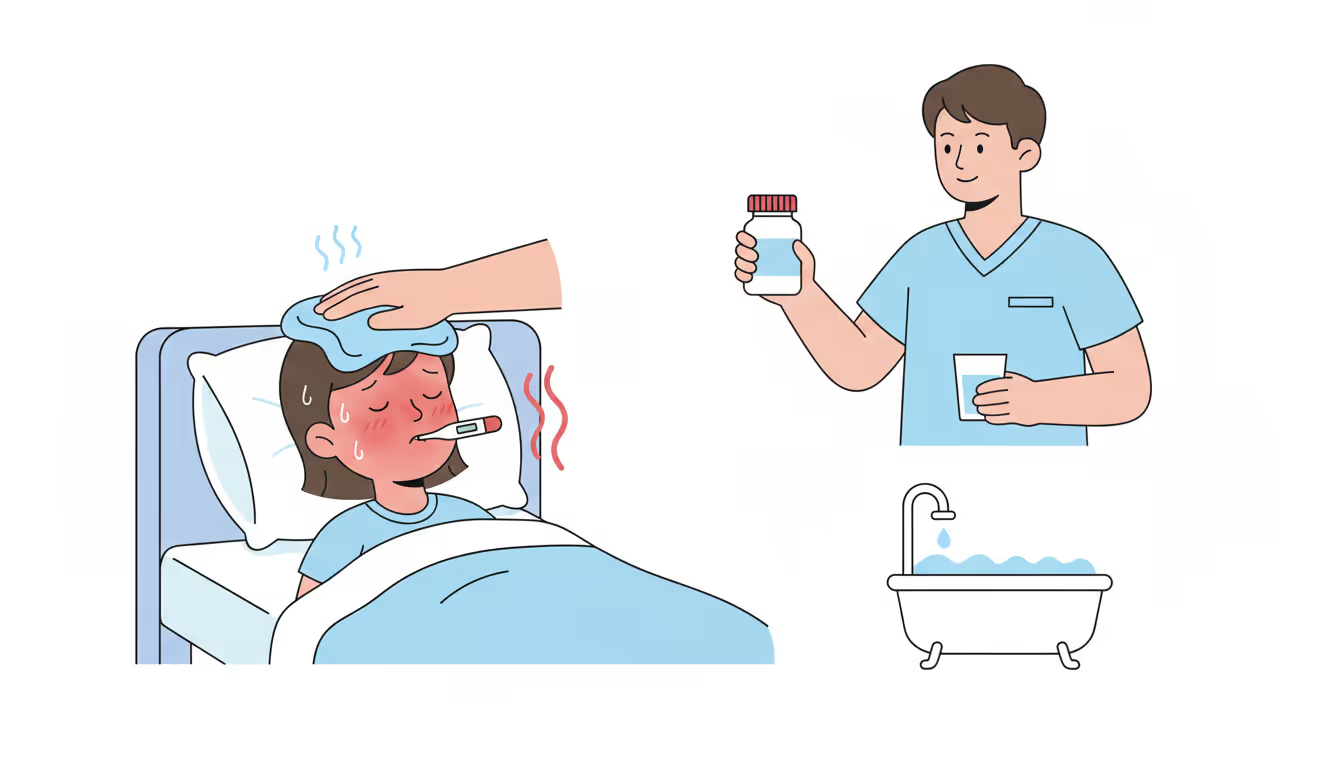
Fever:While technically any body temperature above the normal 98.6°F (37°C) is considered a fever, in practice, a person is generally not regarded as having a significant fever until their temperature exceeds 100.4°F (38°C). Fever acts as a component of the body's defense mechanism; elevated body temperatures can potentially eliminate many harmful organisms. Consequently, minor fevers are often left untreated. However, if the fever is accompanied by other concerning symptoms, consulting a doctor is advisable. When fevers reach 104°F or higher, especially in children, they may lead to serious complications like convulsions. Such high fevers require immediate home treatment followed by medical attention. Possible home remedies include administering aspirin or non-aspirin pain relievers for children, along with cool baths or sponging to lower the fever while seeking medical care. Fevers can arise from almost any infection or illness. Temperature is typically measured using a thermometer.




